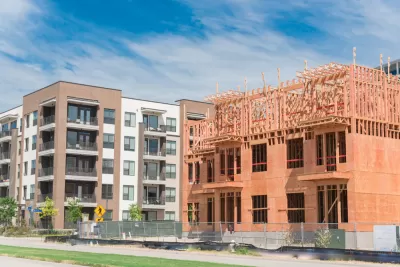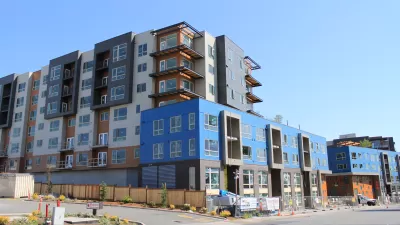The microchip shortage facing the automotive industry illustrates the significant impact that supply has on the cost of durable goods.

In his newsletter, Matthew Yglesias analyzes the recent microchip shortage in the automotive market in the context of lessons it can teach those who study the housing market.
Yglesias notes that the curtailed production of new cars during the shortage has led to a rise in prices for used cars and trucks—signaling that a constraint on the supply of new durable goods—like a car or a house—does have a measurable effect on the cost of used items in the same category. Consequently, even the cheapest used cars became difficult to afford as supplies failed to keep up with surging demand. Meanwhile, most experts agree that rising vehicle prices aren't due to vacancies, speculation, or greedy manufacturers—even though those things do exist in both industries. Unlike in the housing market, Yglesias contends that, when it comes to cars, "we are having a pretty reasonable policy debate" about how to prevent future supply chain disruptions like the chip shortage, in part because we have a "living memory" of a well-functioning auto market.
According to Yglesias, the clear-cut evidence from the auto industry should be illustrative to housing advocates who often don't believe that more market rate housing will ease cost pressures on older housing stock.
FULL STORY: Housing policy lessons from the microchip shortage

Planetizen Federal Action Tracker
A weekly monitor of how Trump’s orders and actions are impacting planners and planning in America.

Congressman Proposes Bill to Rename DC Metro “Trump Train”
The Make Autorail Great Again Act would withhold federal funding to the system until the Washington Metropolitan Area Transit Authority (WMATA), rebrands as the Washington Metropolitan Authority for Greater Access (WMAGA).

The Simple Legislative Tool Transforming Vacant Downtowns
In California, Michigan and Georgia, an easy win is bringing dollars — and delight — back to city centers.

The States Losing Rural Delivery Rooms at an Alarming Pace
In some states, as few as 9% of rural hospitals still deliver babies. As a result, rising pre-term births, no adequate pre-term care and harrowing close calls are a growing reality.

The Small South Asian Republic Going all in on EVs
Thanks to one simple policy change less than five years ago, 65% of new cars in this Himalayan country are now electric.

DC Backpedals on Bike Lane Protection, Swaps Barriers for Paint
Citing aesthetic concerns, the city is removing the concrete barriers and flexposts that once separated Arizona Avenue cyclists from motor vehicles.
Urban Design for Planners 1: Software Tools
This six-course series explores essential urban design concepts using open source software and equips planners with the tools they need to participate fully in the urban design process.
Planning for Universal Design
Learn the tools for implementing Universal Design in planning regulations.
Smith Gee Studio
City of Charlotte
City of Camden Redevelopment Agency
City of Astoria
Transportation Research & Education Center (TREC) at Portland State University
US High Speed Rail Association
City of Camden Redevelopment Agency
Municipality of Princeton (NJ)





























